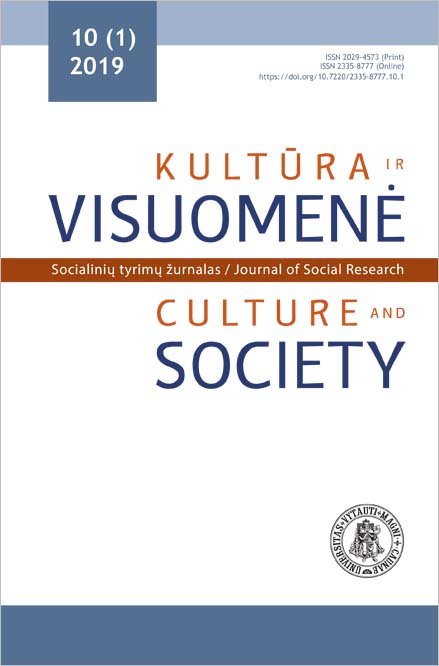Interesų grupių dalyvavimas ir įsitraukimas vietos lygmeniu: ar savivaldybių bendradarbiavimas gali būti demokratiškas?
Participation of Interest Groups at the Local Level: Can Inter-municipal Cooperation Become Democratic?
Author(s): Jurga Bučaitė-VilkėSubject(s): Governance, Government/Political systems, Rural and urban sociology
Published by: Vytauto Didžiojo Universitetas
Keywords: Democratic participation; Inter-municipal cooperation; Local engagement; Interest groups; Network governance;
Summary/Abstract: The article focuses on the question of whether the inter-municipal cooperation can be analyzed by referring to democratic representation and democratic legitimacy concepts. We focus on the democratic input, output, and throughput legitimacy dimenions that reveal how municipal cooperation arrangements deal with the problems of democratic deficit. The article offers a theoretical discussion on network governance that analyzes different interactions between local actors and emphasizes the forms of decentralization and horizontal cooperation and involvement strategies of various stakeholders. We propose the theoretical model of democratic legitimacy in inter-municipal cooperation that is complemented with the data of a quantitative survey of inter-municipal cooperation motivations and potential conducted in January-May of 2018. The aim of the survey was to investigate the drivers and outcomes of inter-municipal cooperation forms in Lithuanian municipalities; reveal the inter-institutional coordination mechanisms used by different local interest groups; evaluate the distribution of power among cooperative partners in delivering municipal services; assess the role of municipalities and social stakeholders in improving the provision of public services. The results of the structural model show the significant differences in treating the initiatives, motives, and outcomes of collaborative arrangements. The main decision-making power is associated with the municipality bureaucrats and local politicians that use their mandate to foster inter-municipal cooperative initiatives. The internal mutual networks and high level of trust enable the more effective inter-municipal cooperation that is associated with a greater impact on municipal service quality and public interest. These inter-municipal cooperative networks are characterized by horizontal and vertical interactions and informal commitments, enabling the implementation of different public service optimization models. On the contrary, local civil interest groups are poorly represented in cooperative arrangements and have the limited democratic power to shape cooperative initiatives. In terms of the input, output and throughput legitimacy criteria, local community actors do not have enough democratic mandate to use their channels of interaction with local authorities in inter-municipal cooperative initiatives.
Journal: Kultūra ir visuomenė: socialinių tyrimų žurnalas
- Issue Year: 10/2019
- Issue No: 1
- Page Range: 153-175
- Page Count: 23
- Language: Lithuanian

